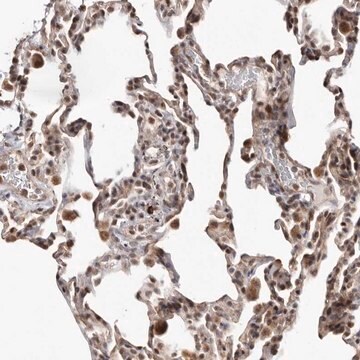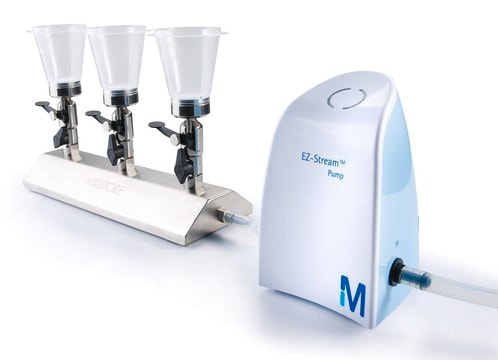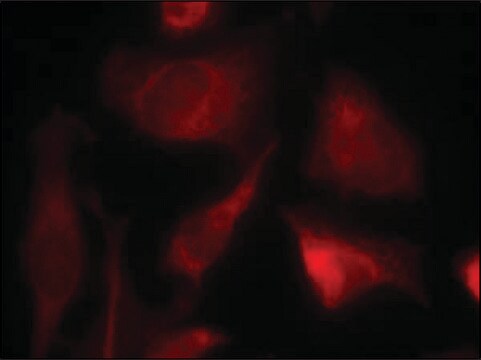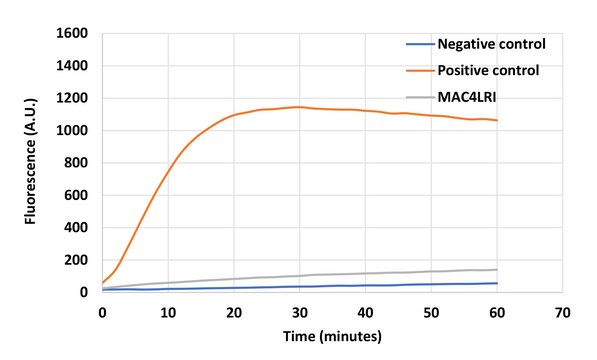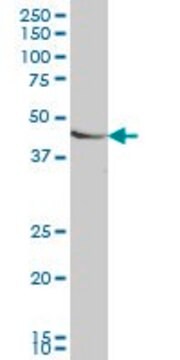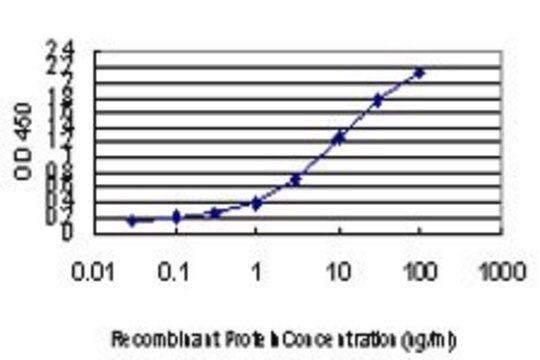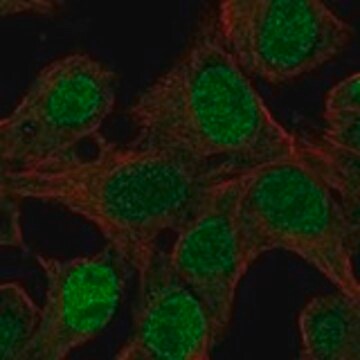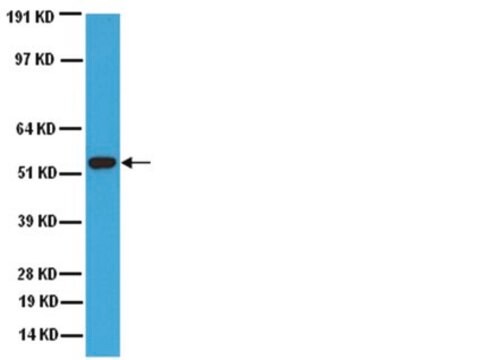SAB4200345
Anti-SMAD7 antibody produced in rabbit
~1.0 mg/mL, affinity isolated antibody
Sinonimo/i:
SMAD7 Antibody - Anti-SMAD7 antibody produced in rabbit, Smad7 Antibody, Anti-MADH7, Anti-MADH8, Anti-SMAD family member 7
About This Item
Prodotti consigliati
Origine biologica
rabbit
Livello qualitativo
Coniugato
unconjugated
Forma dell’anticorpo
affinity isolated antibody
Tipo di anticorpo
primary antibodies
Clone
polyclonal
Stato
buffered aqueous solution
PM
antigen ~46 kDa
Reattività contro le specie
human, mouse, rat, bovine, monkey
Concentrazione
~1.0 mg/mL
tecniche
indirect immunofluorescence: 5-10 μg/mL using human A549 cells.
western blot: 2-4 μg/mL using whole extracts of HEK-293 cells over-expressing human SMAD7
N° accesso UniProt
Condizioni di spedizione
dry ice
Temperatura di conservazione
−20°C
modifica post-traduzionali bersaglio
unmodified
Informazioni sul gene
human ... SMAD7(4092)
mouse ... Smad7(17131)
rat ... Smad7(81516)
Cerchi prodotti simili? Visita Guida al confronto tra prodotti
Descrizione generale
Immunogeno
Applicazioni
Azioni biochim/fisiol
Stato fisico
Esclusione di responsabilità
Non trovi il prodotto giusto?
Prova il nostro Motore di ricerca dei prodotti.
Codice della classe di stoccaggio
12 - Non Combustible Liquids
Classe di pericolosità dell'acqua (WGK)
WGK 1
Punto d’infiammabilità (°F)
Not applicable
Punto d’infiammabilità (°C)
Not applicable
Scegli una delle versioni più recenti:
Certificati d'analisi (COA)
Non trovi la versione di tuo interesse?
Se hai bisogno di una versione specifica, puoi cercare il certificato tramite il numero di lotto.
Possiedi già questo prodotto?
I documenti relativi ai prodotti acquistati recentemente sono disponibili nell’Archivio dei documenti.
Global Trade Item Number
| SKU | GTIN |
|---|---|
| SAB4200345-200UL | 4061837013201 |
Il team dei nostri ricercatori vanta grande esperienza in tutte le aree della ricerca quali Life Science, scienza dei materiali, sintesi chimica, cromatografia, discipline analitiche, ecc..
Contatta l'Assistenza Tecnica.